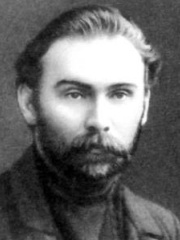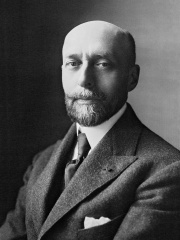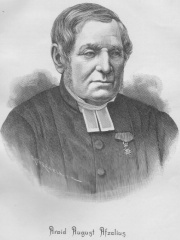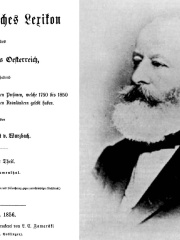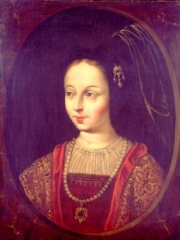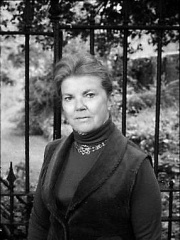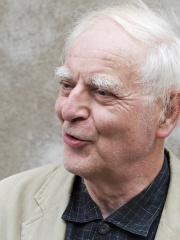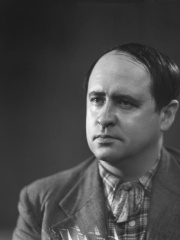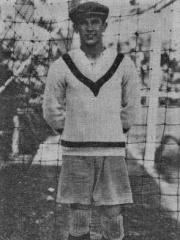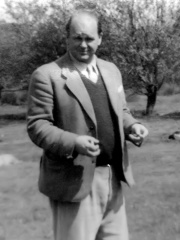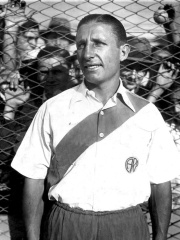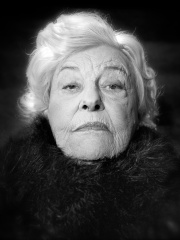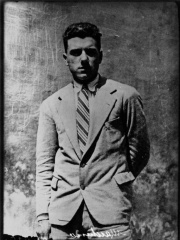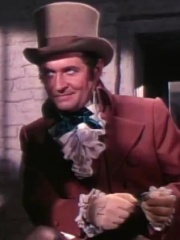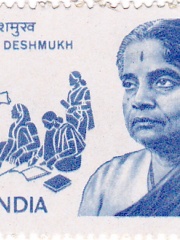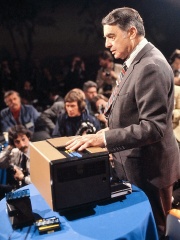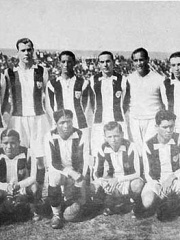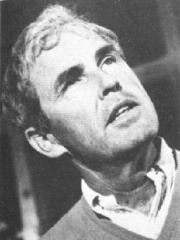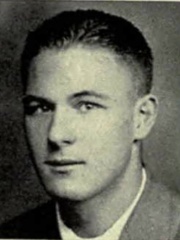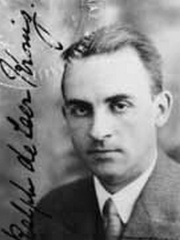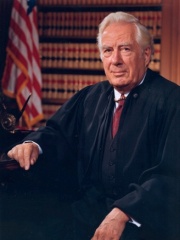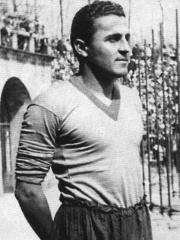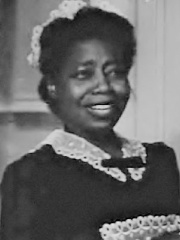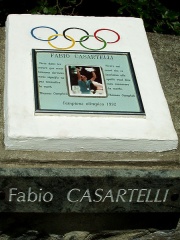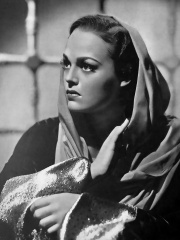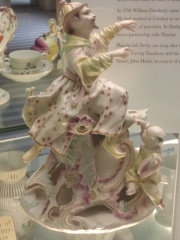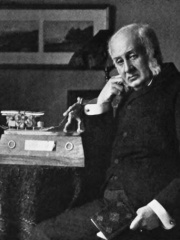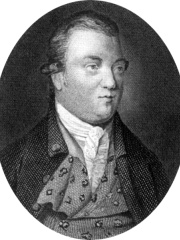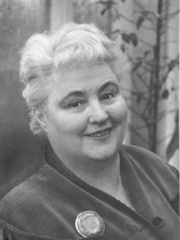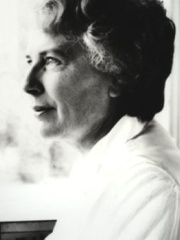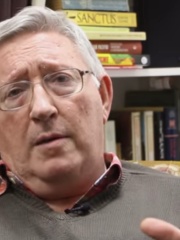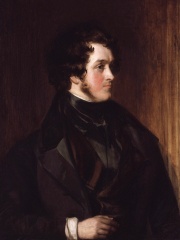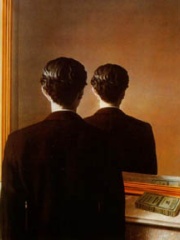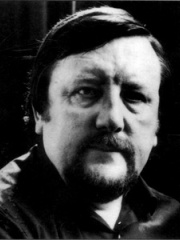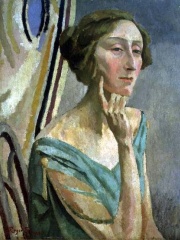Schriftsteller
Stephen Spender
1909 - 1995
DE.WIKIPEDIA PAGE VIEWS (PV)
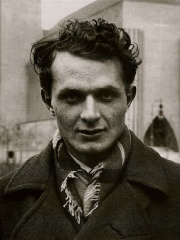
 Stephen Spender
Stephen Spender
Seine Biografie ist in 28 verschiedenen Sprachen auf Wikipedia verfügbar (gestiegen von 27 im Jahr 2024). Stephen Spender ist der 5,132nd beliebteste Schriftsteller (gestiegen vom 5,635th im Jahr 2024), die 4,067th beliebteste Biografie aus Vereinigtes Königreich (gestiegen vom 4,347th im Jahr 2019) und der 436th beliebteste aus Vereinigtes Königreich Schriftsteller.
Memorability Metrics
Page views of Stephen Spender by language
Among Schriftstellers
Among schriftstellers, Stephen Spender ranks 5,132 out of 7,302. Before him are Nikolai Klyuev, Ann Druyan, René Boylesve, Antti Tuuri, Arvid August Afzelius, and Constantin von Wurzbach. After him are Beatriz Galindo, Candace Bushnell, Joan Aiken, Adolf Muschg, Jacques Audiberti, and Zsigmond Kemény.
Most Popular Schriftstellers in Wikipedia
Go to all RankingsNikolai Klyuev
1884 - 1937
HPI: 55.38
Rank: 5,126
Ann Druyan
1949 - Present
HPI: 55.38
Rank: 5,127
René Boylesve
1867 - 1926
HPI: 55.38
Rank: 5,128
Antti Tuuri
1944 - Present
HPI: 55.37
Rank: 5,129
Arvid August Afzelius
1785 - 1871
HPI: 55.37
Rank: 5,130
Constantin von Wurzbach
1818 - 1893
HPI: 55.37
Rank: 5,131
Stephen Spender
1909 - 1995
HPI: 55.36
Rank: 5,132
Beatriz Galindo
1465 - 1534
HPI: 55.36
Rank: 5,133
Candace Bushnell
1958 - Present
HPI: 55.36
Rank: 5,134
Joan Aiken
1924 - 2004
HPI: 55.35
Rank: 5,135
Adolf Muschg
1934 - Present
HPI: 55.35
Rank: 5,136
Jacques Audiberti
1899 - 1965
HPI: 55.35
Rank: 5,137
Zsigmond Kemény
1814 - 1875
HPI: 55.35
Rank: 5,138
Contemporaries
Among people born in 1909, Stephen Spender ranks 313. Before him are Guillermo Eizaguirre, Peter Scott, José María Minella, Marianne Hoppe, Luigi Marchisio, and Robert Douglas. After him are Valerio Perentin, Durgabai Deshmukh, Edwin H. Land, Anna Świrszczyńska, Chester Himes, and Eduardo Astengo. Among people deceased in 1995, Stephen Spender ranks 249. Before him are Robert Parrish, Karl Warner, Burton Jastram, Ralph Kronig, Aldo Gordini, and Osvald Käpp. After him are Warren E. Burger, Maino Neri, Butterfly McQueen, Sergei Grinkov, Fabio Casartelli, and Katherine DeMille.
Others Born in 1909
Go to all RankingsGuillermo Eizaguirre
SOCCER PLAYER
1909 - 1986
HPI: 55.52
Rank: 307
Peter Scott
PAINTER
1909 - 1989
HPI: 55.50
Rank: 308
José María Minella
SOCCER PLAYER
1909 - 1981
HPI: 55.50
Rank: 309
Marianne Hoppe
ACTOR
1909 - 2002
HPI: 55.46
Rank: 310
Luigi Marchisio
CYCLIST
1909 - 1992
HPI: 55.39
Rank: 311
Robert Douglas
ACTOR
1909 - 1999
HPI: 55.39
Rank: 312
Stephen Spender
WRITER
1909 - 1995
HPI: 55.36
Rank: 313
Valerio Perentin
ATHLETE
1909 - 1998
HPI: 55.36
Rank: 314
Durgabai Deshmukh
POLITICIAN
1909 - 1981
HPI: 55.30
Rank: 315
Edwin H. Land
PHYSICIST
1909 - 1991
HPI: 55.27
Rank: 316
Anna Świrszczyńska
WRITER
1909 - 1984
HPI: 55.13
Rank: 317
Chester Himes
WRITER
1909 - 1984
HPI: 55.12
Rank: 318
Eduardo Astengo
SOCCER PLAYER
1909 - 1979
HPI: 55.12
Rank: 319
Others Deceased in 1995
Go to all RankingsRobert Parrish
FILM DIRECTOR
1916 - 1995
HPI: 55.68
Rank: 243
Karl Warner
ATHLETE
1908 - 1995
HPI: 55.52
Rank: 244
Burton Jastram
ATHLETE
1910 - 1995
HPI: 55.46
Rank: 245
Ralph Kronig
PHYSICIST
1904 - 1995
HPI: 55.44
Rank: 246
Aldo Gordini
RACING DRIVER
1921 - 1995
HPI: 55.42
Rank: 247
Osvald Käpp
WRESTLER
1905 - 1995
HPI: 55.37
Rank: 248
Stephen Spender
WRITER
1909 - 1995
HPI: 55.36
Rank: 249
Warren E. Burger
JUDGE
1907 - 1995
HPI: 55.30
Rank: 250
Maino Neri
SOCCER PLAYER
1924 - 1995
HPI: 55.10
Rank: 251
Butterfly McQueen
ACTOR
1911 - 1995
HPI: 55.06
Rank: 252
Sergei Grinkov
SKATER
1967 - 1995
HPI: 55.01
Rank: 253
Fabio Casartelli
CYCLIST
1970 - 1995
HPI: 55.00
Rank: 254
Katherine DeMille
ACTOR
1911 - 1995
HPI: 55.00
Rank: 255
In Vereinigtes Königreich
Among people born in Vereinigtes Königreich, Stephen Spender ranks 4,068 out of NaN. Before him are Andrew Planche (1727), Phil Anderson (1958), Rupert Friend (1981), Dele Alli (1996), Clements Markham (1830), and Jay Kay (1969). After him are Kevin McKidd (1973), Luke Foxe (1586), Joan Aiken (1924), Marmaduke Tunstall (1743), Glenn Hoddle (1957), and Donald Nicol (1923).
Others born in Vereinigtes Königreich
Go to all RankingsAndrew Planche
BUSINESSPERSON
1727 - 1809
HPI: 55.39
Rank: 4,062
Phil Anderson
CYCLIST
1958 - Present
HPI: 55.38
Rank: 4,063
Rupert Friend
ACTOR
1981 - Present
HPI: 55.38
Rank: 4,064
Dele Alli
SOCCER PLAYER
1996 - Present
HPI: 55.38
Rank: 4,065
Clements Markham
EXPLORER
1830 - 1916
HPI: 55.37
Rank: 4,066
Jay Kay
MUSICIAN
1969 - Present
HPI: 55.37
Rank: 4,067
Stephen Spender
WRITER
1909 - 1995
HPI: 55.36
Rank: 4,068
Kevin McKidd
ACTOR
1973 - Present
HPI: 55.36
Rank: 4,069
Luke Foxe
EXPLORER
1586 - 1635
HPI: 55.36
Rank: 4,070
Joan Aiken
WRITER
1924 - 2004
HPI: 55.35
Rank: 4,071
Marmaduke Tunstall
BIOLOGIST
1743 - 1790
HPI: 55.35
Rank: 4,072
Glenn Hoddle
SOCCER PLAYER
1957 - Present
HPI: 55.35
Rank: 4,073
Donald Nicol
HISTORIAN
1923 - 2003
HPI: 55.35
Rank: 4,074
Among Schriftstellers In Vereinigtes Königreich
Among schriftstellers born in Vereinigtes Königreich, Stephen Spender ranks 436. Before him are Kim Newman (1959), Margery Allingham (1904), Mary Stewart (1916), Sarah Kane (1971), Linda Grant (1951), and Alan Woods (1944). After him are Joan Aiken (1924), Elizabeth Jane Howard (1923), William Harrison Ainsworth (1805), Edward James (1907), Bob Shaw (1931), and Edith Sitwell (1887).
Kim Newman
1959 - Present
HPI: 55.55
Rank: 430
Margery Allingham
1904 - 1966
HPI: 55.54
Rank: 431
Mary Stewart
1916 - 2014
HPI: 55.53
Rank: 432
Sarah Kane
1971 - 1999
HPI: 55.53
Rank: 433
Linda Grant
1951 - Present
HPI: 55.52
Rank: 434
Alan Woods
1944 - Present
HPI: 55.51
Rank: 435
Stephen Spender
1909 - 1995
HPI: 55.36
Rank: 436
Joan Aiken
1924 - 2004
HPI: 55.35
Rank: 437
Elizabeth Jane Howard
1923 - 2014
HPI: 55.26
Rank: 438
William Harrison Ainsworth
1805 - 1882
HPI: 55.24
Rank: 439
Edward James
1907 - 1984
HPI: 55.23
Rank: 440
Bob Shaw
1931 - 1996
HPI: 55.21
Rank: 441
Edith Sitwell
1887 - 1964
HPI: 55.16
Rank: 442
